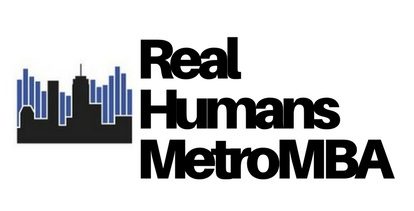Search results for mba recruiters:
Building Your Bayer Career with an MBA
The pharmaceutical and biotech industries are rife with opportunities for b-school students. Competition among brands and rapid technological development make can make having an MBA an exceptionally worthwhile advantage.
New MBA Jobs Openings: California
The length of California is approximately 770 miles. From top to bottom, visitors will find a mass of fascinating contradictions—Silicon Valley, Napa, Hollywood Glitz, Malibu, the SF Mission, Humboldt County pot farms, Yosemite,
San Diego surf, Fresno farmland, Palm Desert, the rolling hills of John Steinbeck Country.
These are just a handful of examples that represent the wonderful diversity of landscapes and communities all technically located in one U.S. state. It seems abundantly clear why so many MBA graduates look to the Golden State to make careers for themselves.
This week, we highlight four California Job openings available for MBA graduates:
Top Online MBA Programs that Do Not Require the GMAT or GRE

MetroMBA has compiled crucial resources as you consider an Online MBA Programs that does not require the GMAT or GRE below:
Why Do Schools Require The GMAT/GRE?
Similar to how the SAT plays a role in undergraduate admission to higher education, the GMAT/GRE have been a consistent requirement for the majority of business programs globally. This standardized test has been one of a variety of factors that go into consideration when being accepted into programs. There are three main reasons that the GMAT/GRE has been part of the application process:
Reliable Indicator of Student Success:
Based on surveys conducted by GMAC, the GMAT has been a reliable indicator of student success in the classroom among MBA programs. Many applicants also choose the GRE as an alternative to the GMAT due to its lower cost and unique scoring system.
Equalizer in Admission Process to Gauge Quality of Prospective Students:
The GMAT/GRE also provides a standardized scoring system, which is applicable to all students entering admissions to top MBA programs. Other factors such as years of work experience and undergraduate GPA are subjective and can vary depending on the applicant.
Major Factor in Many Major MBA Rankings:
Major publication rankings such as the Financial Times, U.S. News & World Report, and Bloomberg take into consideration the average GMAT score for each MBA programs incoming class. For example, the mean GMAT and GRE score is weighted at 0.1625 percent for the U.S. News ranking. Historically, schools have an incentive to accept students with higher GMAT scored for ranking purposes in these major publication rankings.
Why Pursue an Online MBA?
There are many reasons to pursue an online MBA degree versus a full-time on-site MBA or a part-time on-site MBA:
Advancement in Technology:
The advancement in technology platforms, schools are increasingly able to provide an in-person atmosphere at remote locations for students. For example, many colleges utilize the web platform ClassroomLIVE, which is an integrated, web-based learning environment that delivers programs in real-time from classrooms on college campus’s direct to students, in their homes, at their workplaces, or while traveling. This provides a synchronous learning opportunity where students are able to interact live with professors and other students during the class as it is taking place on campus. Take a look at an example of the interactive learning platform here.
More Accepted Among Employers:
The stigma among corporate recruiters and hiring mangers when it came to online MBA job seekers was that it was not as respected compared to on-campus MBA offerings. However, with the online MBA becoming more popular among degree seekers, corporate recruiters and hiring managers are weighing the name of your college and the type of degree you have earned is more heavily than the method by which you earned your degree.
Flexibility:
One of the major issues facing MBA degree seekers is balancing a career and family obligations while also being able to complete an MBA. Many part-time programs are offered at specific locations on specific days, creating a barrier for applicants to pursue the degree offering. One of the major advantages of pursuing an online MBA program is the flexibility the learning experience offers. Many programs are beginning to offer students the option to attend the classroom learning in person, but not penalizing them for accessing the curriculum remotely.
Lower Costs:
Since the overhead cost are lower for colleges and universities, online MBA programs are typically cheaper than on-site program offerings. This is another advantage for students who are looking to complete a flexible MBA degree at a lower cost. On average, online MBA programs cost about 15-20 percent less than an on-site offering.
What are the General Requirements of Online MBA Programs That Do Not Require the GMAT or GRE?
For applicants who are looking to bypass the GMAT and pursue an MBA that does not require the GMAT, there still are requirements to be eligible for admissions to many online MBA programs, they include:
- Schools application
- Bachelor’s degree
- Resume
- Letters of Recommendation
- Personal Statement
- Application Fee
What Factors Should I Consider for Choosing an Online MBA?
Network of Professors and Faculty:
The professors and faculty in your MBA program are one of the most important facilitators as you learn the curriculum of an MBA. Professors have in-depth knowledge of business practices as they apply to the real world and the best ones can challenge you to apply the skills you learn throughout your MBA to real-life scenarios to prepare you as a business professional. It is important to understand your professors background and experience and how it will impact their teaching style and expertise.
Network in the Classroom:
Although professors and faculty will steer high-level learning, your classmates will have a large impact on your classroom discussions, projects, and case studies. Learning from experienced individuals will provide more value and insight throughout your MBA. It is important to prioritize the level of quality among your classmates to enhance your learning experience during your online MBA.
Alumni Networks
One of the most important assets an MBA program can provide is its inclusion to a wide range of alumni from CEO’s and CFO’s of Fortune 500 companies to presidents and general managers of global corporations. It is important as you consider the quality of the MBA program, that you also heavily factor in the alumni network that each institution provides to its newly dubbed alumni. These networks open doors to employment and internship opportunities post-graduation.
Internships
Many MBA programs offer internship opportunities during your educational experience. MBA internships allow you to get your foot in the door while directly applying the knowledge and skills you gained during your MBA. It is also important to research the career services office to see where previous MBA students have interned to make sure the opportunities fit your goals.
The Top Online MBA Programs That Do Not Require the GMAT or GRE:
 Loading Programs
Loading Programs
New MBA Job Openings: Strategic Consulting Positions
Newly minted MBAs can choose to take their careers in a variety of different directions after they graduate. A number of them go into the world of consulting, advising clients, and businesses on various issues. This week we will highlight a particular subset of consulting: strategic consulting.
Strategic consultants help businesses and clients prepare plans for future products, optimize their organization, and develop advertising campaigns, to name just a few tasks. If you enjoy planning, researching, and thinking three steps ahead, you should look at this week’s jobs.
Top MBA Jobs: Senior Financial Analyst
Working in financial services is one of the most coveted career paths for MBA graduates. It pays well; you can find a job anywhere in the world; and top companies recruit in finance. Unfortunately, all that means that there is a lot of competition. It can be tough to break into the financial services industry though rewarding. If you’re interested in this lucrative career field, becoming a financial analyst might be the best place to start. Let’s take a look at what senior financial analysts do, how much they earn, who’s hiring, and where to earn your MBA. Continue reading…
Top 5 Paying MBA Careers: Finance
Finance, no surprise, is an extremely popular field among MBA graduates. According to Payscale, finance is 4.7 times more popular among MBA graduates than other fields. The reasons for this are rather uncomplicated: its pretty lucrative.
The starting median salary for those with up to five years of experience is $62,100. After ten years, the reported median salary jumps to $120,000; a 93 percent increase. Given that it is finance, the bonuses that employees can earn are massive, making the field even more lucrative.
With such high salaries and the prospect of massive bonuses, those interested in finance might be curious about what the best positions are for them. These can vary by company, experience, and location.
Companies Recruiting Finance MBA Graduates
The firm you work for can affect how much you make. Larger firms tend to offer more than smaller houses. The following are the top five employers in terms of average salary for those with an MBA in finance.
Morgan Stanley: $136,500
Deloitte: $132,656
Microsoft: $123,684
Amazon: $123,678
Citigroup: $121,346
Finance MBA Experience
As one might expect, the more experience one has in a field, the higher their salary will be. According to Payscale, this is a breakdown of average salary based on years of experience.
- Up to 11 Months: $58,517
- 1–4 Years: $65,589
- 5–9 Years: $86,086
- 10–19 Years: $113,775
- 20+ Years: $135,016
Finance MBA Location
Along with company size and experience, location is the other major determinant of salary for finance MBA graduates. Given the fact that finance tends to be centralized in major cities, it is reasonable to assume that the largest salaries are to be found in cities with large, well-populated metropolitan areas. The following are the five cities where MBA graduates can earn the most.
- New York, NY: $120,962
- Los Angeles, CA: $111,727
- Boston, MA: $109,490
- Chicago, IL: $108,421
- Houston, TX: $101,643

For finance savvy MBA graduates, New York City offers the best average salary opportunities in the United States.
Top Paying Finance Careers
While there are many careers from which a finance MBA can choose, the following offer the highest salaries. To maximize a potential salary, one should consider the variables mentioned above when searching for a position.
#1: Vice President, Finance ($135,000–$195,000)
As a vice president of finance, your primary responsibility will be to direct finances and coordinate the budget. The VP of finance also sets goals and oversees lower-level employees in the financial department. Other responsibilities include engaging in accounting, operations, and finance management.
Common tasks include the following:
- Ensuring company financial plans are carried out
- Coordinating, preparing, and reviewing annual reports
- Directing accounting operations
The average salary of a VP of finance is $134,919. In addition, MBA graduates can earn an average of $24,430 in bonuses, $24,566 in commission, and $8,757 in profit sharing. The salary on this job can raise these numbers higher depending on where one works. Look for these positions in the following cities, where you can earn more than the average:
- San Francisco, CA: 28 percent more
- Los Angeles, CA: 16 percent more
- Boston, MA: 15 percent more
#2: Finance Director ($110,000–$160,000)
Finance directors are responsible for managing the goings on in the finance department of the company. In addition, effective finance directors can see problems and risks and design necessary solutions as needed.
Common tasks include the following:
- Overseeing the preparation of regulatory and financial reporting as required
- Developing policies and procedures to control and report financials
- Managing budget, forecast, and accounting preparations
The average salary of a finance director is $111,384. MBA graduates can expect to earn an average bonus of $18,556, $33,000 in commission, and $5,113 in profit sharing. According to Payscale, the following are three highest paying companies for this position:
- Nike: $150,000
- Lilly: $130,000
- CBRE Group: $128,000
#3: Investment Banker ($99,000–$207,000)
As an investment banker, your primary responsibility is to grow wealth for your clients. This can be through either strategic investing or raising capital. Investment bankers look through all of the financial information of a company to develop the best strategy for addressing its concerns and reaching its goals.
Common tasks include the following:
- Constructing financial models to aid in transactions and communications
- Performing valuation analyses
- Conducting industry and company research
On average, you can expect to earn an average of $98,831 in salary. Investment banking is rather lucrative, so it is not impossible to double your salary in commission alone. However, because if this, the salary scale can widely vary. The average commission for this position on Payscale is $90,000. To make that possible, you’ll need to go to a city where capital generation is needed. These three places pay more than the average, according to Payscale:
- San Francisco, CA: 52 percent higher
- New York, NY: 12 percent higher
- Dallas, TX: 5 percent higher

Investment bankers would do well to look into a career in the Bay Area. San Francisco-metro investment bankers make nearly 50 percent more than the national average, according to Payscale data.
#4: Finance Manager ($90,000–$124,000)
Finance managers are expected to watch departmental budgets. Their primary responsibilities include making financial forecasts for their company, working with other departments to establish future budgets, and keeping excellent track of the money going in and out of the company.
Common tasks for people in this position include the following:
- Identifying areas for cost reduction
- Providing analyses to the operations team
- Preparing informational analyses
Given the importance of this position, MBA graduates who pursue it will be compensated well. The average salary for a finance manager is $89,636. In addition to the base salary, an MBA graduate can expect an average of $9,959 in bonuses, $25,006 in commission, and $3,982 in profit sharing.
Because this position is so important, companies are willing to pay excellent candidates well. The following offer the three highest average salaries according to Payscale:
- Boeing: $119,000
- Amazon: $112,000
- Johnson & Johnson: $111,000
#5: Portfolio Manager ($84,000–$140,000)
Portfolio managers are responsible for investing their clients’ money, whether those clients are businesses or individuals. They work to get the highest return possible for their clients’ money.
Common tasks for this position include the following:
- Consulting with clients to develop investment goals
- Reporting on investment performance
- Managing portfolios to maximize returns
Portfolio managers earn an average of $84,443, with $10,274 in bonuses, $10,113 in commission, and $4,000 in profit sharing. According to Payscale, these positions tend to be centered in financial institutions and investment firms.
The following three banks offer the highest average salaries to their portfolio managers.
- Blackrock: $115,000
- S. Bank: $99,000
- Citizens Financial Group: $97,000
Invest in Your Future By Applying to New MBA Jobs at Top Investment Firms
You’ve invested all this time in earning your MBA degree, now invest some time in applying to new MBA jobs at these top investment firms. Working at an investment firm can be widely varied and rewarding, with the average graduate earns more than $140,000 according U.S. News & World Report. Here are just a few potential landing spots for MBAs to bring their talents after earning their degree: Continue reading…
#1 Ranked IU Kelley Online MBA Undergoes Major Curriculum Update
Sponsored Content
Already ranked #1 by the U.S. News & World Report, the IU Kelley Direct Online MBA has revamped its program for a more customizable experience. Now, their online program is even more robust while still offering the same flexibility and strengths that have made Kelley Direct a long-time business leader.
As always, the same faculty that teach in the IU Kelley on-campus programs also teach in the Kelley Online program. The Kelley Direct Online program also still includes live case studies within every in-residence week, offers global and domestic immersions, and focuses on quality student experiences.
The purpose of the revamp wasn’t to take away any of the elements that made the online MBA so great in the first place. Instead, the goal was to enhance the curriculum and offer more customization to make the program even stronger.
The Kelley Direct Online MBA now offers students 50 percent electives, seven majors, and a signature integrated core experience focused on business fundamentals.
It’s the next evolution of the online MBA, which goes far beyond what people typically think of for online MBAs.
“The primary motivation for the redesigned online MBA was not to focus on a new market segment, but to update our product and create a significant differentiator from other competitors in the marketplace,” explains Ramesh Venkataraman, chair of the Kelley Direct Online MBA and MS programs.
More Electives for a More Customized Student Experience

A quick glance at the current marketplace tells you that a candidate with specialized knowledge is more valuable than a general management MBA candidate. So, it made sense for the Kelley Online MBA program to update its curriculum to match what employers want, and they did this by drastically increasing the number of electives offered.
“In general, online MBA programs tend to be more core-heavy with less potential for electives,” Ramesh says. “But why should our online MBA not have as many electives as any other product? Specialized knowledge is what the marketplace wants, and our new electives allow students to gain that knowledge and use it as a launching pad in their careers.”
The newly revamped online MBA, which launches this fall, requires students to complete 27 credit hours of core coursework and 27 credit hours of electives—a 50/50 split. It’s a significant change from the previous format, which allowed for just 12 elective credits. The increase—with at least ten different electives in each of seven disciplines—results in a far more customizable student experience that’s aligned with both student and employer expectations.
But don’t worry; to get here, the online MBA didn’t take away from the core knowledge students need. Instead, the new curriculum is far more streamlined. The core material has been compressed into two credit hour classes instead of three, but with the same subject matters and essence.
“They’re not going to lose content,” states Ramesh. “They’re just going to enjoy their core content in a new format.”
The newly revamped online MBA format breaks down the core curriculum into three blocks: understanding markets and institutions; delivering value through functional excellence; and creating and sustaining competitive advantage. Each block includes a trio of 12-week courses with eight live sessions each that leverage technology to get the content out synchronously and asynchronously.
- Core 1: Business law and ethics, economics, and organizational behavior.
- Core 2: Operations management, marketing management, and financial management.
- Core 3: Digital tech and innovation, developing strategic capabilities, and an integrative live case experience.
Though, you should note, the update does mean that there’s a little more overall work. Online students now have to complete a total of 54 credits compared to 51.
However, the hope is that this increased workload will result in MBA students from a wider variety of backgrounds choosing the program thanks to the depth and breadth of their new course offerings, which includes seven new majors.
- Business Analytics
- Entrepreneurship & Innovation
- Finance
- Global Supply Chain Management
- IT Management
- Marketing
- Strategic Management
These majors allow students to choose the curriculum that best reflects their interests and career goals. Now, it’s possible to go deep into a specific business area or industry in a way that wasn’t possible before, providing students with a way to optimize their resume and find the best opportunities for moving forward.
Learning Doesn’t Stop Inside the Classroom. It’s an Immersive Experience with Many Co-Curricular Opportunities.

But learning doesn’t stop in the classroom when you choose the Kelley Online MBA. It’s an immersive experience that helps you build skills and confidence far beyond the curriculum through co-curricular opportunities.
“We know that online MBA students want to build a set of experiences that complement what they do in their online courses, but there’s a lot of variability in terms of what students want to build,” says Adam Herman, executive director of the Kelley Direct MBA and MS programs. “So, we offer a wide range of co-curricular opportunities that students can use to strengthen their professional profile.”
There are four main types of co-curricular activities:
- Experiential learning, including global and domestic immersion experiences as part of credit-bearing courses.
- A robust slate of affinity groups/clubs, both identity-oriented and career field-specific.
- Twice-annual Global Connect Networking Night in 25-30 cities across the globe.
- A suite of high-impact offerings from the career and professional development center.
In particular, experiential learning is a hallmark of the Kelley Direct Online MBA program. From a variety of in-person courses that focus on a particular business area to global and domestic immersion experiences, experiential learning is a highlight of many students’ education.
“Experiential learning is super important to the Kelley Online MBA program,” says Joe Hwalek, a ’19 MBA and associate brand manager for Hyatt Place Hotels, Hyatt Corp. “The greatest experience has been working in smaller teams. You spend an incredible number of hours working and learning from them, and each time, I’ve been awed at the level of professionalism and the solutions that we’ve put together.”
These immersive, educational experiences enrich the online MBA and create life-changing moments where students can make connections and learn by doing.
For example, there’s an annual trip to Washington D.C. that focuses on public policy. Students spend a week at the Washington Campus exploring, site seeing, and learning from the best and brightest individuals in politics.
“The program is fantastic,” describes Elisa Stampf, a ’19 MBA and senior small commercial sales representative at The Hartford. “The first day we were on campus we listened to speakers from all walks of life, backgrounds, and political parties. The next day, we toured Capitol Hill, spent time at the National Press Club, and more. Everything was incredibly relevant, and was an investment that was worth every penny.”
Also worth every penny are the global experiences where students will see the world and gain international economic knowledge and skills to move their careers forward.
MBA Students Are Going to Work in a Global Environment, and Being Online Doesn’t Change that Fact.
“Just because you’re an online MBA student doesn’t change the fact you’re an MBA student in need of international experience,” says Ramesh. “So, the more our students understand what it takes to do business outside the U.S. and in different cultures, the better. Our global experiences are crucial to providing that exposure.”
These Global Immersions typically include 5-6 weeks of online content to give students a deep understanding of business in a rapidly emerging market such as Thailand, India, South Africa, or Cuba. Then students head to their country of study to visit key companies and work on a real-world project. After returning to their homes, students work on—and submit—valuable deliverables designed to meet their clients’ needs.
“Our group was paired with a client and tasked to solve some of their business problems,” remembers Elisa. “We faced some challenges along the way, but we were able to consult with a local MBA student who knew the language and culture and who helped strengthen our experience.”
Even if students choose not to head out on a week-long international trip to a foreign country, they still have the opportunity to gain exposure to global business during their second Kelley Connect Week. During that time, they take on a business case study in a foreign country, which forces them to solve an international business problem, giving every student a global perspective.

IU Kelley MBA students in Vietnam.
Kelley Connect Weeks Are When Students Fall in Love with the Program
Speaking of Kelley Connect Weeks, when you ask students about their most memorable times in the Kelley Online MBA, they’ll always mention these two weeks. As Elisa says, “Kelley Connect Week was when I fell in love with the program and what I was doing.”
In most online programs you rarely meet your fellow students in person. However, that’s exactly the point of Kelley Connect Weeks. You attend these twice during the program for a full week, not a short weekend, allowing you to be completely immersed in the program, city, and school.
“Kelley Connect Weeks immerse you in something bigger,” explains Elisa.
Kelley Connect Weeks are a chance to feel connected to your classmates, professors, and the program on a much deeper level. Students head to Indiana University’s Bloomington campus for a week when they’ll meet faculty and classmates, work on team projects, undergo intensive coursework, and attend networking events. The highlight of the week is the live business case where students work in a team to solve a real client/company problem before presenting their solution to the real company, face-to-face.
“The Kelley Connect Weeks are super rewarding,” says Joe. “I’ve created friendships that I’ll have for the rest of my life. And from a career perspective, my classmates have been a valuable source of advice and networking, ultimately helping me make a career change.”

Top-Ranked Career Services Take Online MBAs to the Next Level
And making a career change is why many online MBA students choose an MBA. They’re looking for a change in their function, industry, location, or promotion—a way to enhance their potential. And that’s why the Kelley’s Graduate Career Services are so valuable.
“We have a five-phase career development model for our online MBA students,” explains Adam Herman. “It begins before the first Kelley Connect Week when students are sent pre-work focused on their career goals. From there, students are assigned a dedicated career coach who works alongside the student and guides them throughout the rest of their MBA program.”
These career coaches regularly check in with their students one-on-one to provide insight, offer feedback, and help with overall career navigation. Combined with online materials, weekly communication, and the ability to take classes delivered by the career services office, students have endless opportunities to impact their career in both small and large ways.
With a 115,000-strong alumni network, there are thousands of ways to make meaningful career connections.
For Joe Hwalek, that meant changing his career twice throughout the course of the program. He started out working at an advertising agency, but what he really wanted was to make the switch to working for a corporation. And that’s exactly what he did.
“I’m very fortunate that throughout my online MBA, I was able to move to another ad agency and then to a strategic role with Hyatt,” Joe explains. “The MBA gave me the knowledge that I needed to showcase myself well and demonstrate my commitment to my career field.”
In the End, It’s All About the Students.
And, in the end, the Kelley Online MBA, revamped or not, has always been about what students can get out of it.
“Our lives are so incredibly unique and diverse, and we get to share those experiences live,” says Elisa. “I now have people across the country and world that I know thanks to this program. And we’ve all been able to help each other in our professional lives. The technology IU Kelley uses does a stellar job of bringing people together.”
“The reason I chose the Kelley Online MBA is the flexibility it gave me, no matter my life stage,” Joe says. “I was able to move homes, change jobs twice, and maintain my lifestyle all while continuing my education. Life is busy, and you never know what will happen, so the flexibility to adjust my schedule weekly was invaluable.”
Choose an MBA where your success is paramount. Learn more and apply at the Kelley Direct Online MBA website.
New MBA Jobs in the Automotive and Gas Industries
There’s no better time to take a road trip than in the summertime, when the sun is shining and the cool breeze blowing against your face. So in the spirit of hitting the open road and enjoying some fun after getting out a list of MBA job applications, here’s a look at new MBA jobs at top companies in the automotive and gasoline industries. Continue reading…
Top MBA Jobs: Investment Banking Analyst
Landing a job in an investment firm is a top goal for many MBAs. They want to bring their talents and knowledge to investors, banks, and corporations who can benefit from their expertise. It’s an exciting and very demanding career field, especially in the wake of the Great Recession of 2008 and 2009.
Banks, brokerages, and financial services firms are looking for candidates that have deep and broad insight into the industry and a willingness to learn more. That’s how you get started as an Investment Banking Analyst. Continue reading…
Real Humans of the University of Michigan Ross School of Business Part-Time MBA Program
For MBA hopefuls looking to enroll in a part-time program in the United States, there is a certain unspoken caveat. While the part-time is often presented as the malleable, flexible alternative to the traditional full-time program, it is often just a different restrictive version. For many schools, even some of the most prestigious in the country, the choice between full-time and part-time is simply just two options. However, the University of Michigan Stephen M. Ross School of Business has continually expanded the parameters of what a part-time program can truly be.

The Michigan Ross part-time MBA, ranked as the sixth best in the country according to U.S. News & World Report, isn’t simply a longer version of the full-time offering. Rather, the school gives potential students three indelibly different avenues to take. The 60 credit part-time Evening MBA, perhaps the most “traditional” part-time offering from the school, allows students to craft their own academic schedule, with classes offered after work on weeknights, weekends, and online. Some courses can even be taken during the day with the full-time MBA cohort at the school’s Ann Arbor campus. The part-time Weekend MBA offers a more compressed schedule, in comparison, with classes held every other weekend. In contrast to the Evening MBA offering, which takes three-to-four years to complete, the Weekend MBA offering can be finished in just two years.
Two part-time MBA variations may not seem unconventional, but few schools regularly lauded as much as Michigan Ross (10th overall in U.S. News & World Report, 19th globally in Bloomberg) also have the option of an Online MBA.
In late 2018, Michigan Ross introduced its brand new Online MBA program, embracing the ever-changing business school landscape head on. It wasn’t too long ago that the idea of an online degree, never mind an online MBA, was met with heavy skepticism, with major academic institutions sticking with traditional degrees despite the oncoming sea change. And while the inclusion of the online option to its part-time MBA opportunities may have seemed unorthodox at first glace, the administration crafted it as carefully as it does all its MBA programs.
In a recent interview with MetroMBA, Anne Schoen, Associate Admissions Director of Part-Time MBA Programs, talks about how the Online MBA features all-important elements found all of the school’s MBA curriculum:
“One of the signature features of a Michigan Ross MBA is an emphasis on action-based learning, and our Part-Time MBA: Online is no exception. Our three required on-campus residential experiences and required Multidisciplinary Action Project (MAP) course set us apart from other online programs. Our students will enjoy the flexibility of an online program, but also will benefit from engaging in-person with faculty and fellow students during these fully immersive experiential learning projects. These experiences will require that students take the theories they learn in class and apply them to real-world business scenarios. We also will offer our online students full access to our Career Development Office resources, including assistance with on-campus and off-campus recruiting, and individualized career development planning.”
When talking with several Michigan Ross part-time MBA Class of 2020, the school’s expansive options seem to reflect the diverse background of its students, of which include an experienced engineer from Kanpur, India, a former restaurant manager from New England, and a Canadian chemist, among others. Read on to see their stories and what the future may hold for life after an MBA.
The Best New Investment MBA Jobs
Investment firms typically act as intermediaries between investors and corporations. They are also popular landing spots for MBAs to bring their talents after earning their degree. There are exciting new positions out there for both new grads and seasoned workers alike. Here’s a look at some of the best new MBA jobs in the investment banking sector: Continue reading…
New Consulting Jobs for MBA Grads at Strategy&, IDEO, and More
With summer on the way, you can look forward to more sun and plenty of new MBA jobs. Sunny days are ahead, so take your laptop or tablet outside, fill out a job application at any of these well-known consulting firms, and get ready for not only a season filled with fun, but also new opportunities on the horizon. Continue reading…
Where Should You Go? The Benefits of a Mid-Tier MBA
You have an MBA acceptance letter from both Harvard Business School and Cornell SC Johnson. Which do you choose?
Your gut reaction might be to choose Harvard’s top-ranked MBA program without a second’s pause. After all, aren’t business school rankings—like those compiled by the Financial Times and U.S. News & World Report—the most important consideration when choosing your MBA program?
In some cases, you might be right. If you’re most interested in reputation, then ranking is all important. However, there are many times when rankings should be taken with a grain of salt. They tell a story, but not the whole story, especially when it comes to you as an individual candidate.
Just because a specific school is top-ranked, does not mean it should be the top rank for you. Many mid-level MBA programs are just as impressive and could be a better fit for you depending on your needs.
In this article, we’ll take an in-depth look at when and why you should choose a mid-ranked MBA program over a top-ranked program. Continue reading…
New Pharmaceutical MBA Jobs That Will Catch Your Attention
Any time you’re making a run to your local CVS, Duane Reade, Wallgreens or Rite Aid, you’re surrounded by a cornucopia of consumer goods. From soaps to over the counter medicines, cleaning products to make-up, there’s no shortage of stuff you can conveniently buy. As such, there’s also no shortage of new MBA jobs at the companies who manufacture and distribute the goods. Here’s a selection of new pharmaceutical MBA jobs at companies you should remember. Continue reading…
New MBA Accounting Jobs at AT Kearney, Accenture, and More
Not every MBA will will land a job at one of the “Big Four” accounting firms of KPMG, Ernst & Young, Deloitte, and PricewaterCoopers. Thankfully, there are plenty of other new MBA jobs available at other reputable consulting firms across the country. Here’s a look at some of the best new MBA jobs open at companies like Accenture, LEK Consulting, BCG, and AT Kearney. Continue reading…
MBA Jobs: Business Development Manager
One fact of life in any business, large or small, is that a strategic vision for future growth is a necessity. Equally important is translating that vision into a workable plan, which is the primary focus of the Business Development Manager. The combination of lead generation, targeting the most profitable markets, and perhaps most importantly, making and keeping healthy client relationship are the hallmarks of this role. An MBA with this specialty affords a host of opportunities for jobs in an impressive array of industries. Here, we will take a look at some of the profession’s required skills, along with salary ranges, specialty programs, and a brief summary of some current job opportunities.
Business Development (BD), briefly, is the creation and management of new leads and relationships in order to achieve sales targets. Strong communication skills are an obvious foundation in any career, but in BD it is imperative that one can express ideas to a wide variety of audiences at all levels of business. Acquiring new clients requires the ability to put oneself in another’s shoes, as opposed to just delivering a sales pitch. Other necessary BD skills include
- Negotiation
- Data analysis
- Accounting and forecasting
Business Development Manager Salary
According to Glassdoor data, the average salary for a Business Development Manager in the U.S. is $77,444 per year, regardless of degree. Typically, the salary range is from $40,000 to $135,000.
An important aspect of a BD to consider are the long and unpredictable hours. According to one Indeed.com user describing the role:
“If you are not the type of person who is willing to work for and undetermined amount of hours … this is not the job for you.” On the other hand, the long hours often result in large payoffs, including bonuses for top performers.
Another BD notes, “My current position primarily entails hunting new prospects … I learn [a lot] by dealing with various business model scenarios.”
Getting Started
A bachelor’s degree that includes studies in finance, sales, marketing, business administration, or economics is a great place to begin for a future in business development. Studies in these areas, along with organizational and consumer behavior, supplement the “numbers” side of a well rounded education, as a large part of the BD profession involves predicting the movements of trends, markets, and individuals.
University of California, Berkeley Haas School of Business
An MBA with a focus in strategy sets one apart from other applicants. Many of these degrees have an international focus. Berkeley Haas, for instance, offers the International Business Development program for MBAs. With the guidance of mentors, students work with globally based clients to help them achieve strategic development goals.

Few business schools effectively combine strategy and international business education quite like the Berkeley Haas School of Business.
University of Pittsburgh’s Katz School of Business
The University of Pittsburgh’s Katz School of Business offers the Two Year MBA with a focus in strategy. This focus trains students for “helping a corporation design a path to growth and profitability amidst competition and constant change. The strategic planner’s role consists of helping the organization to gather, analyze, and organize information.”
University of Pennsylvania Wharton School
The Wharton School’s MBA focus in strategic management is geared toward students with sights set on consulting and/or emerging market business developments. Students choose from a selection of courses, such as Strategy and Competitive Advantage, Strategic Implementation, Entrepreneurship Innovation, and Change & Entrepreneurship.
Duke University Fuqua School of Business
Fuqua School of Business at Duke offers the strategy focus as well, with the goal of training MBAs to gain insight on the question: “Why do some firms consistently outperform others?” This concentration requires students to choose from both advanced strategy and advanced analytical courses.
Pace University Lubin School of Business
The Lubin School of Business at Pace University’s MBA with a focus in strategic management provides a well rounded approach to training future managers, with special focus in areas of Strategic Thinking, Long and Short Term Planning, and Research.
Current Business Development Manager Openings
Among the companies currently hiring for a Business Development Manager are Amazon in New York City, Glaxo Smith Kline in Upper Providence, PA, and Verizon in New York City and New Jersey. Other firms looking for Business Development Management positions are KPMG, Microsoft, and American Express.
New MBA Jobs in the Energy Sector
It’s hard to imagine that just 100 years ago, just 35 percent of American households had electricity and Model T cars were en vogue. Fast forward to present day, and energy companies not only provide the infrastructure that heats our homes and drives our cars, they also help set up future technologies and breakthroughs that will bring newer, cleaner energy innovations for years to come. Check out these exciting new MBA jobs at leading energy companies to see how you can help make an impact in an exciting, and evolving industry. Continue reading…


















